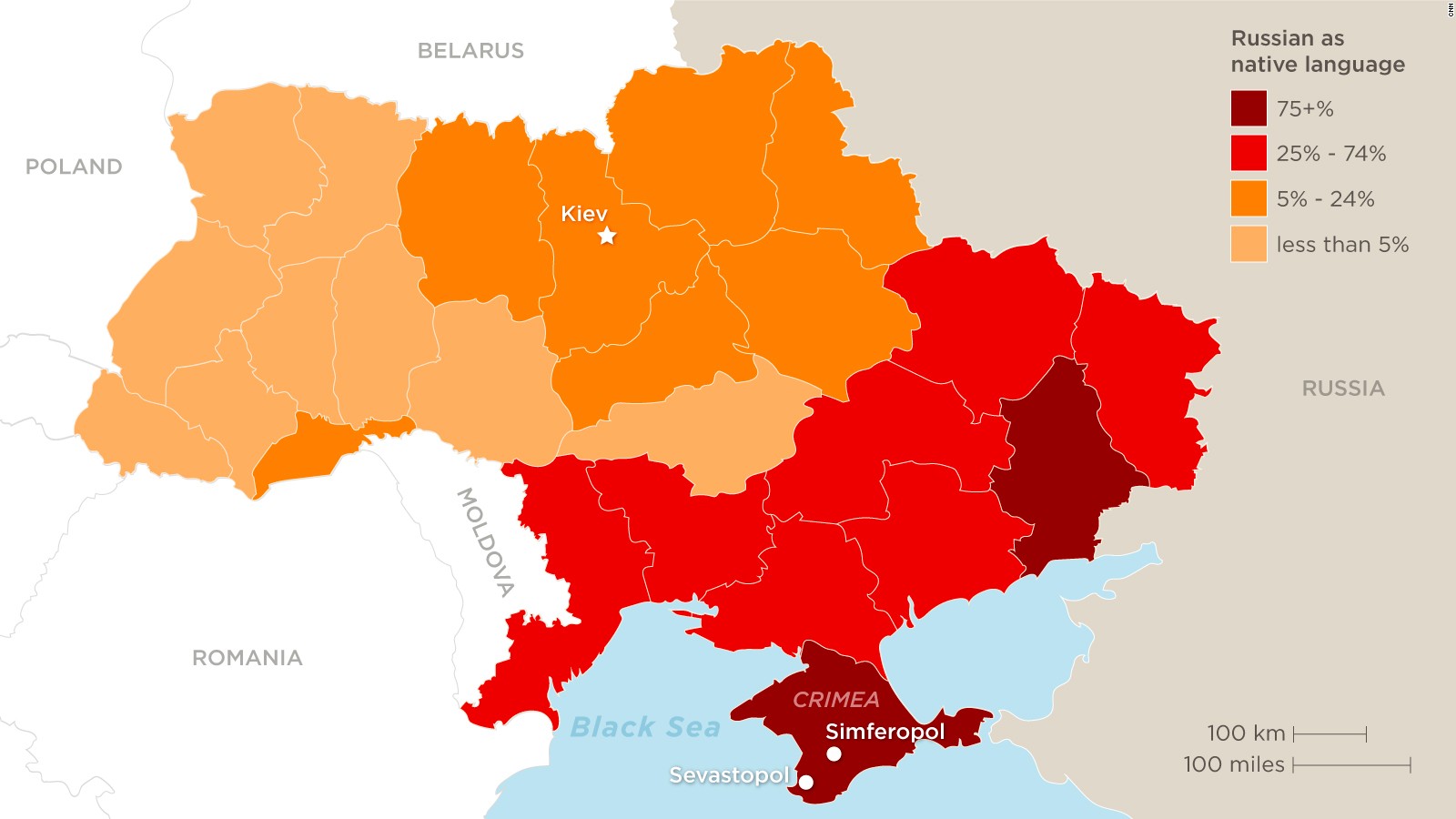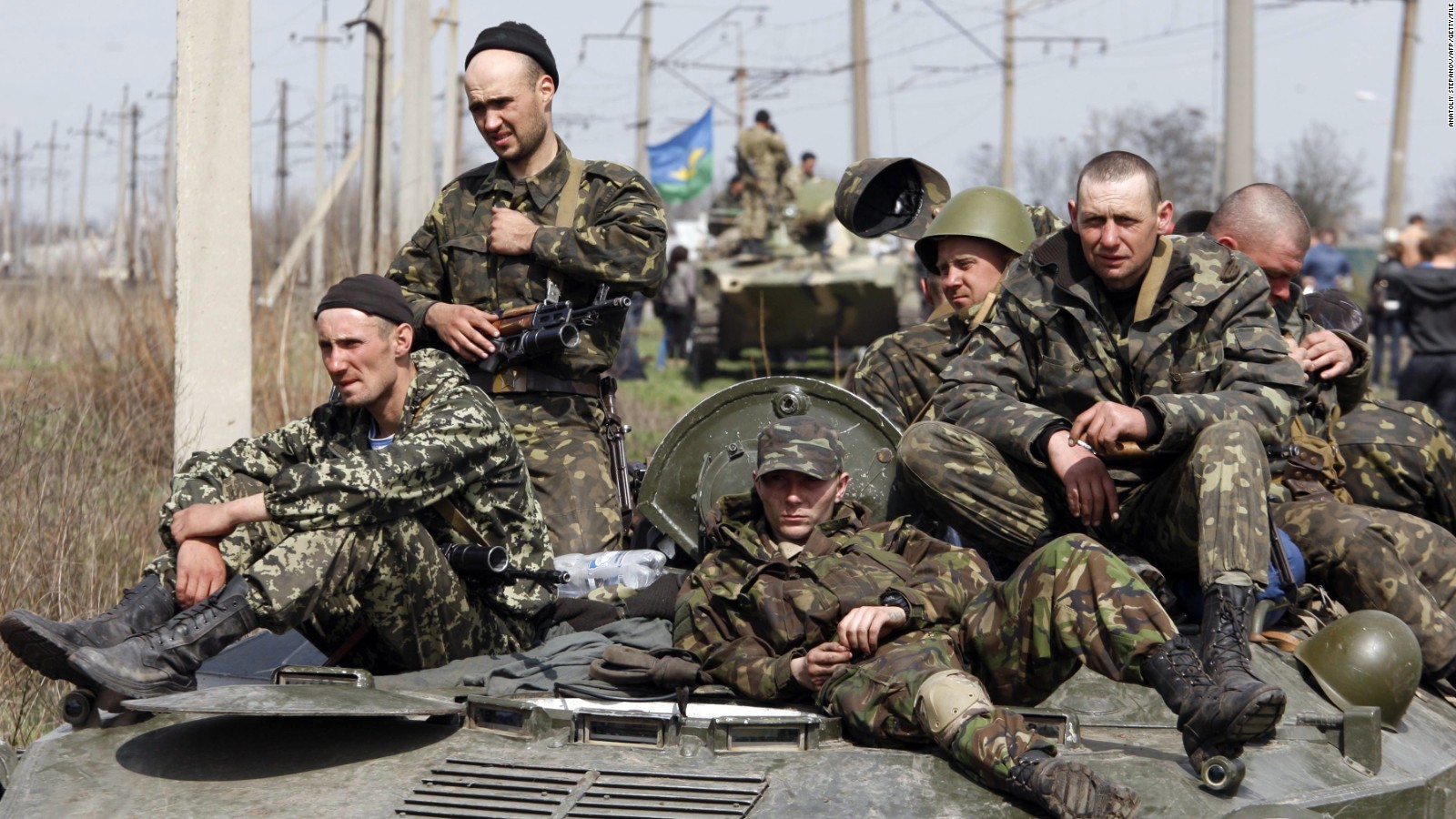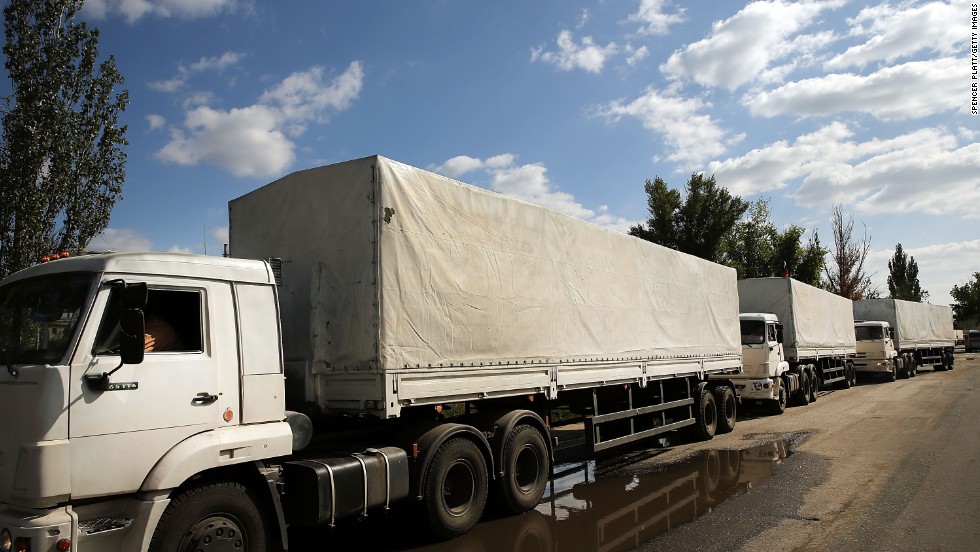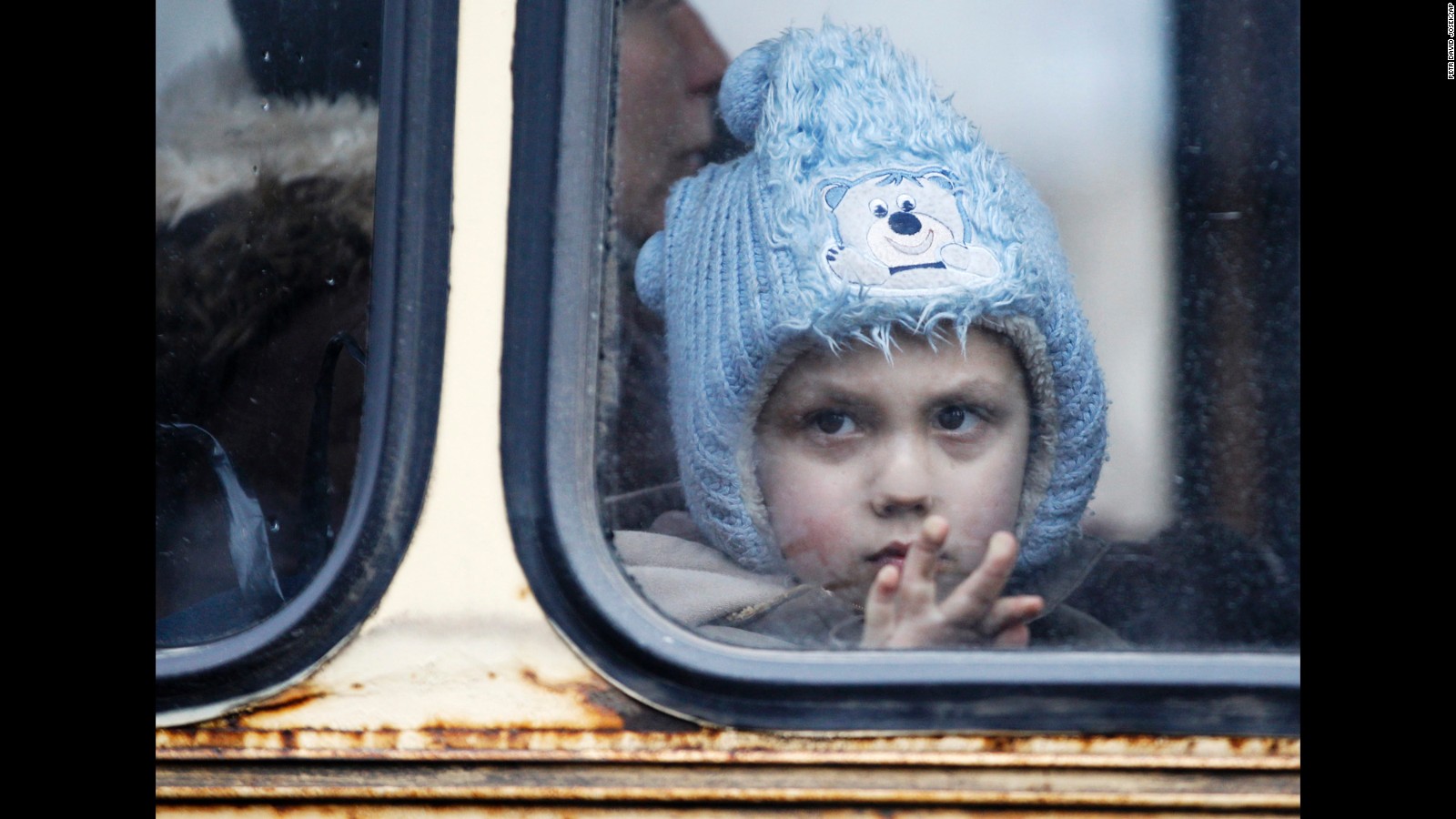Thursday, February 12, 2015
On 3:10 AM by Unknown in www.inulpoker.com | Agen Poker Terpercaya | Poker dan Domino Online Indonesia Terpercaya | Poker dan Domino Terbaik | No comments
www.samsungbola.com | Agen Bola dan Kasino Online | Agen Bola Terpercaya | Bandar Bola |
As world leaders scramble to put a stop to the civil war in eastern Ukraine, explore the 12 days that have defined the conflict since violence first broke out in November 2013. November 21, 2013: After a year of insisting he would sign a landmark political and trade deal with the European Union, Ukrainian President Viktor Yanukovych suspends talks in the face of opposition from Russia, which has long opposed Ukraine forming closer ties with the EU. Tens of thousands of protesters hit the streets in the following days, highlighting the deep divide between the pro-European west and Yanukovych's power base in the pro-Russian east of Ukraine.
November 21, 2013: After a year of insisting he would sign a landmark political and trade deal with the European Union, Ukrainian President Viktor Yanukovych suspends talks in the face of opposition from Russia, which has long opposed Ukraine forming closer ties with the EU. Tens of thousands of protesters hit the streets in the following days, highlighting the deep divide between the pro-European west and Yanukovych's power base in the pro-Russian east of Ukraine. February 20, 2014: Violence that has been simmering for weeks bubbles over when a gunfight erupts between protesters and police in Maidan (Independence) Square in central Kiev, leaving around 100 people dead. Protesters say government snipers opened fire on them; Yanukovych's government blames opposition leaders for provoking the violence.
February 22, 2014: Yanukovych flees Kiev as his guards abandon the presidential compound. Thousands storm the grounds, marvelling at the lavish estate he left behind. Former Prime Minister (and Yanukovych adversary) Yulia Tymoshenko -- jailed in 2011 for "abuse of office" following a trial that was widely seen as politically motivated -- is released from prison and addresses pro-Western protesters in Maidan Square.
March 1, 2014: Russian Parliament signs off on President Vladimir Putin's request to send military forces into Crimea, an autonomous region of southern Ukraine with strong Russian loyalties. Thousands of Russian-speaking troops wearing unmarked uniforms pour into the peninsula. Two weeks later, Russia completes its annexation of Crimea in a referendum that is slammed by Ukraine and most of the world as illegitimate.
 April 15, 2014: Kiev's government launches its first formal military action against the pro-Russian rebels who have seized government buildings in towns and cities across eastern Ukraine. Putin warns that Ukraine is on the "brink of civil war." Less than a month later, separatists in the eastern regions of Donetsk and Luhansk declare independence following unrecognized referendums.
April 15, 2014: Kiev's government launches its first formal military action against the pro-Russian rebels who have seized government buildings in towns and cities across eastern Ukraine. Putin warns that Ukraine is on the "brink of civil war." Less than a month later, separatists in the eastern regions of Donetsk and Luhansk declare independence following unrecognized referendums. May 25, 2014: The "Chocolate King" Petro Poroshenko, a candy company magnate and one of the country's richest men, declares victory in Ukraine's presidential elections. Pro-Russian separatists are accused of preventing people from voting in the violence-wracked east of the country.
June 27, 2014: Poroshenko signs the EU Association Agreement -- the same deal that former president Yanukovych backed out of in 2013 -- and warns Russia that Ukraine's determination to pursue its European dreams will not be denied.
July 17, 2014: 298 people are killed when Malaysia Airlines Flight 17 is shot down by a surface-to-air missile in rebel-held territory in eastern Ukraine. International monitors are initially prevented from reaching the crash site by gunmen, exacerbating the grief of the families of the victims, and it takes days before rebels allow investigators to examine the bodies.
 September 20, 2014: Ukraine and pro-Russian separatists agree to a complete ceasefire and buffer zone that requires all sides to pull heavy weaponry back from front lines of conflict, two weeks after an initial truce was agreed. Meanwhile, a convoy of Russian trucks stream into the border area without the Ukrainian government's approval. Russia insists the trucks are filled with humanitarian aid, but Kiev is skeptical.
September 20, 2014: Ukraine and pro-Russian separatists agree to a complete ceasefire and buffer zone that requires all sides to pull heavy weaponry back from front lines of conflict, two weeks after an initial truce was agreed. Meanwhile, a convoy of Russian trucks stream into the border area without the Ukrainian government's approval. Russia insists the trucks are filled with humanitarian aid, but Kiev is skeptical.  November 12, 2014: A NATO commander says that Russian tanks, weapons and troops are pouring across the border into Ukraine, in apparent violation of the September ceasefire -- a claim that Moscow denies. And by the end of the year the U.N. says more than 1.7 million children in the conflict-torn areas of eastern Ukraine are facing "extremely serious" situations exacerbated by unusually harsh winter conditions.
November 12, 2014: A NATO commander says that Russian tanks, weapons and troops are pouring across the border into Ukraine, in apparent violation of the September ceasefire -- a claim that Moscow denies. And by the end of the year the U.N. says more than 1.7 million children in the conflict-torn areas of eastern Ukraine are facing "extremely serious" situations exacerbated by unusually harsh winter conditions. January 22, 2015: Donetsk International Airport, which was rebuilt ahead of the European soccer championships in 2012, falls to rebels after months of fighting with Ukrainian government forces. Days later, amid spiraling violence, President Poroshenko announces he will ask the International Criminal Court at The Hague to investigate alleged "crimes against humanity" in the conflict.
February 6, 2015: Germany's Angela Merkel and France's Francois Hollande discuss a new peace proposal with Vladimir Putin as the United States says it is considering supplying lethal aid to Ukraine. But European leaders are opposed to arming Kiev government forces and fear it could further ignite a conflict that has now killed more than 5,000 people, including many civilians.
www.samsungbola.com | Agen Bola dan Kasino Online | Agen Bola Terpercaya | Bandar Bola |
Subscribe to:
Post Comments (Atom)
inuLPoker mp4
Blog Archive
-
▼
2015
(639)
-
▼
February
(525)
- Dear boy, I'm the world's biggest fraud: CRAIG BRO...
- Which unnamed soprano murdered Noel Coward's tropi...
- CRAIG BROWN takes trip to fictitional seaside home...
- Ask Lord Prescott... as told to CRAIG BROWN
- Should re-selling website sell primary tickets tha...
- CRAIG BROWN: Who's evil? God, the Archbishop of Ca...
- CRAIG BROWN lists our leaders' ten most interestin...
- How can we find 'inner peace' with HMRC when we're...
- Palestine and Israel unite...against Blair!
- CRAIG BROWN offers a compendium of comforting head...
- CRAIG BROWN: Anyone fancy a nice game of bash a ba...
- TARA EVANS: Unemployed 18-year-old applies for £30...
- CRAIG BROWN: Please Yoko Ono, stop ruining my brea...
- CRAIG BROWN: My top tip for Andy Murray... if you ...
- Nigel Farage answers all of your questions about C...
- CRAIG BROWN: The overacting in The Theory of Every...
- COMMENT: Payday lending problems need urgent atten...
- CRAIG BROWN'S cut out and keep guide to films that...
- CRAIG BROWN: Would Anne Boleyn really use an iPod?...
- And the best labrador in a leading role is...
- CRAIG BROWN: Why I hope Johnny Depp's mustachioed ...
- Excuse me - which way to get lost? A muddled CRAIG...
- CRAIG BROWN: Mellor's next flap? Picking on a peng...
- CRAIG BROWN: Enjoying your birthday? How very un-B...
- Are Ticketmaster's paperless tickets really a bad ...
- Flipping Brilliant! Visit Gran Canaria to get up c...
- Wahey days on the bay! Travel to north Devon for a...
- Reets & wrongs: Who frocked-out on the red carpet ...
- Snow blinder! Alpine resort is a sporting idyll pa...
- BRIT Awards 2015: We head to the backstage spa to ...
- Get her on the catwalk! Stylish Frankie Bridge lea...
- Topshop FROW's sexiest outfits: Kendal Jenner and ...
- Oscars 2015: Get gorgeous Hollywood hair like Jenn...
- Fame Of Thrones: Visit the Croatian city that has ...
- She's just like us! Kim Kardashian reveals she onl...
- Technicolour dream! Moroccan bound for magic trip ...
- High life: Take it to the limit in terrific Toronto
- This is an ICE spot! Les Contamines-Montjoie is th...
- Best of the breast! Holly Willoughby is the cleava...
- Cold Comforts: The best winter holiday destinations
- Zip-zip hooray! Live the high life in a village th...
- Cotton on to this! DJ Fearne rocks new fashion ran...
- Top notch! CRANE transformed into luxury hotel wit...
- From THAT Union Jack pant-exposing dress to Kylie'...
- Made in Chelsea's Rosie Fortescue calls for BAN on...
- JAMES FORSYTH: Reckless by name... Has he handed E...
- 'Watch out Ed Miliband! Your tax triumph might bit...
- JAMES FORSYTH: The Yanks are coming - but are they...
- 'Poor Ed Miliband - even his friends call him a ba...
- JAMES FORSYTH: Why Labour can't wait to be wiped o...
- Silence because it is Dave biggest immigration gam...
- JAMES FORSYTH: Who'll run Britain after the Electi...
- JAMES FORSYTH: David Cameron and the election debates
- JAMES FORSYTH: Why HALF of Ed's MPs have already t...
- JAMES FORSYTH: If Mariupol falls, we could end up ...
- How long will it take to win the Election? Just 10...
- JAMES FORSYTH: George Osborne cuts, Ed Miliband th...
- JAMES FORSYTH: The keys to a Tory win? Fattened pi...
- How a secret Tory pact has stopped the big beasts ...
- JAMES FORSYTH: May's out in front - so they'll sho...
- JAMES FORSYTH: Ed WILL survive... because no one e...
- JAMES FORSYTH: Dave's ready to 'do a Thatcher' on ...
- No, it's not the economy, stupid. It's immigration...
- JAMES FORSYTH: A nation's future... in the hands o...
- Broadchurch FINAL episode: Joe Miller - 'I felt li...
- Dirty Den on Coronation Street? Eastenders Leslie ...
- 'Is this a joke?' Reaction mixed as Broadchurch re...
- EXCLUSIVE: Casual Vacancy village claim 'political...
- 'It was like a car crash' EastEnders' Jo Joyner ad...
- Identity of Deal Or No Deal banker FINALLY revealed
- Game of Thrones Season 4 becomes fastest-selling b...
- WATCH: Tense new House of Cards trailer for season...
- TV round-up: Indian Summers, EastEnders, Wolf Hall...
- SPOILER: EastEnders' Peter and Lauren visit Lucy's...
- 98 years old and STILL as piscatorial as ever…
- 98 years old and STILL horrified by soap…
- 98 years old and STILL having a busy week
- 98 years old and STILL checking checkouts out…
- 98 years old and STILL plays games with chicks…
- 98 years old and STILL punctilliously punctuated
- 98 years old and STILL on a great Odyssey
- 98 years old and STILL longing for tea-time…
- 98 years old and STILL taking one week at a time
- 98 years and STILL blaming chocolate
- 98 years old and STILL counting his chickens
- Justice is not served by the Crown Prosecution Ser...
- Leaders’ TV debate gets ever more silly, blasts AN...
- What happened to the grace and humour which used t...
- Lots of people lack the motivation to cook, slams ...
- Is anybody thinking logically any more?
- Authorities not putting child first, says ANN WIDD...
- Welby’s words were taken out of context, argues AN...
- Bah humbug! Another politically correct year, anot...
- Winston Churchill would get rid of Islamic State a...
- How to tackle New Year, advises ANN WIDDECOMBE
- BBC's Today programme is not a turn-on anymore ¿ i...
- Fair is foul and foul is fair in the world of the ...
- The 'Ugly Sisters' of the teaching unions want to ...
- Teachers are complaining that GCSE English was mar...
- Now is the time to break the stranglehold of the t...
-
▼
February
(525)
0 comments:
Post a Comment